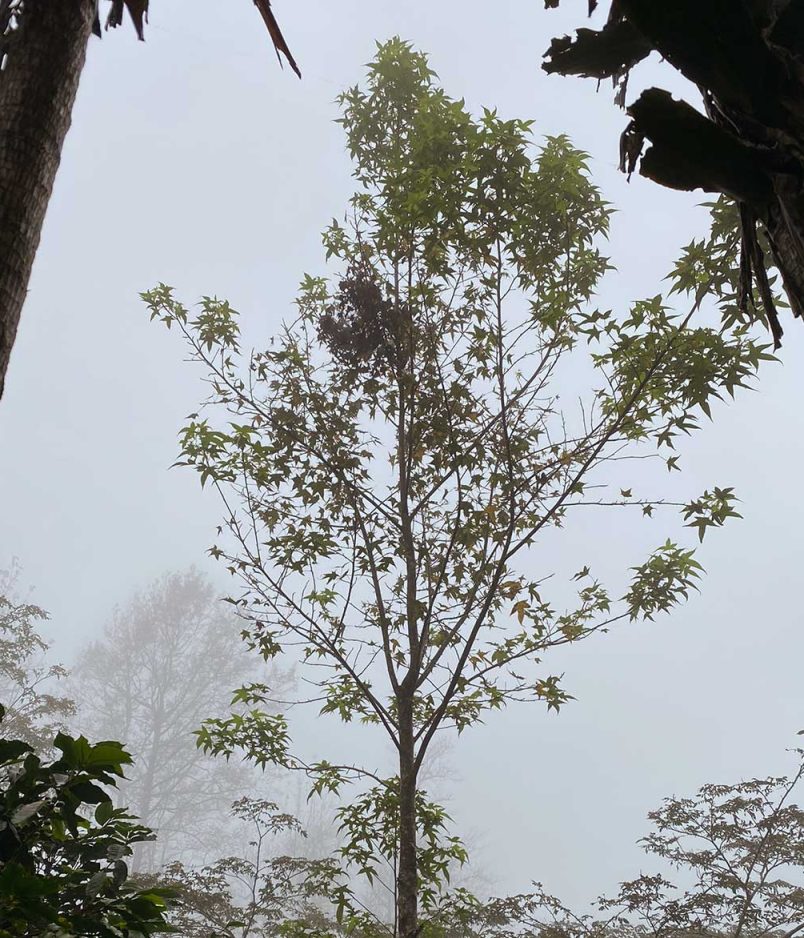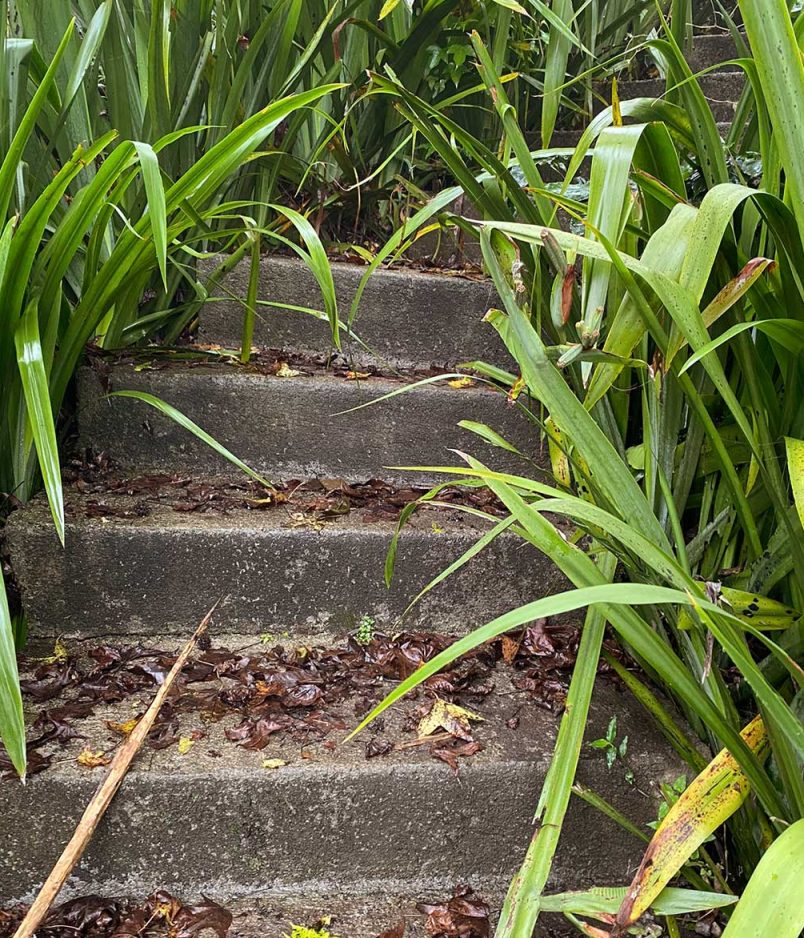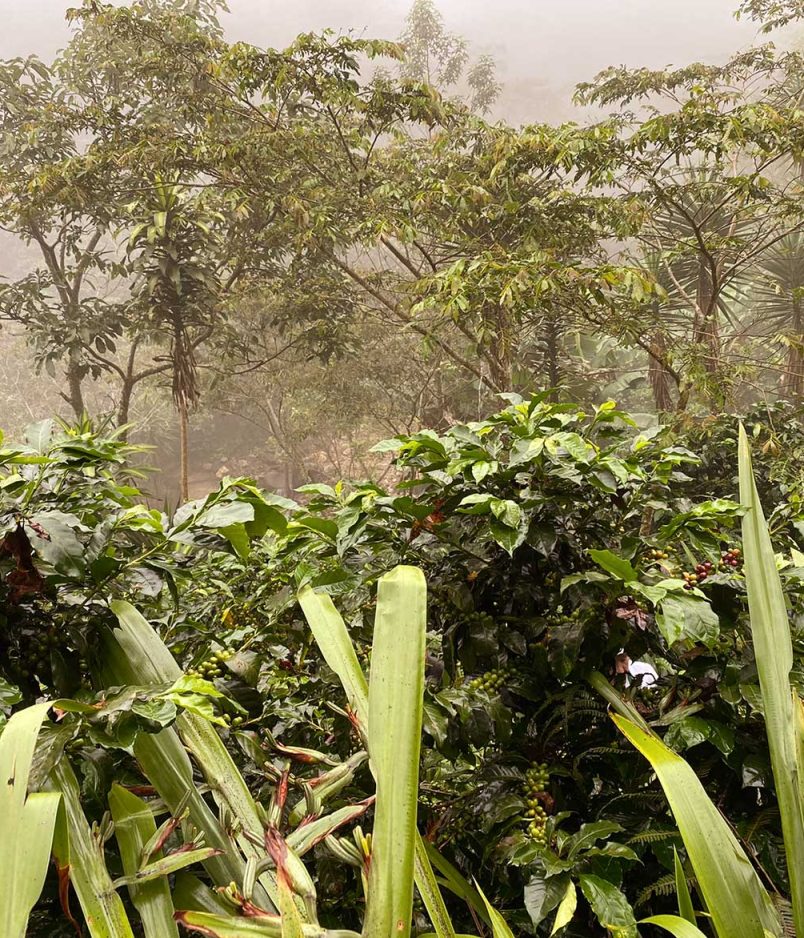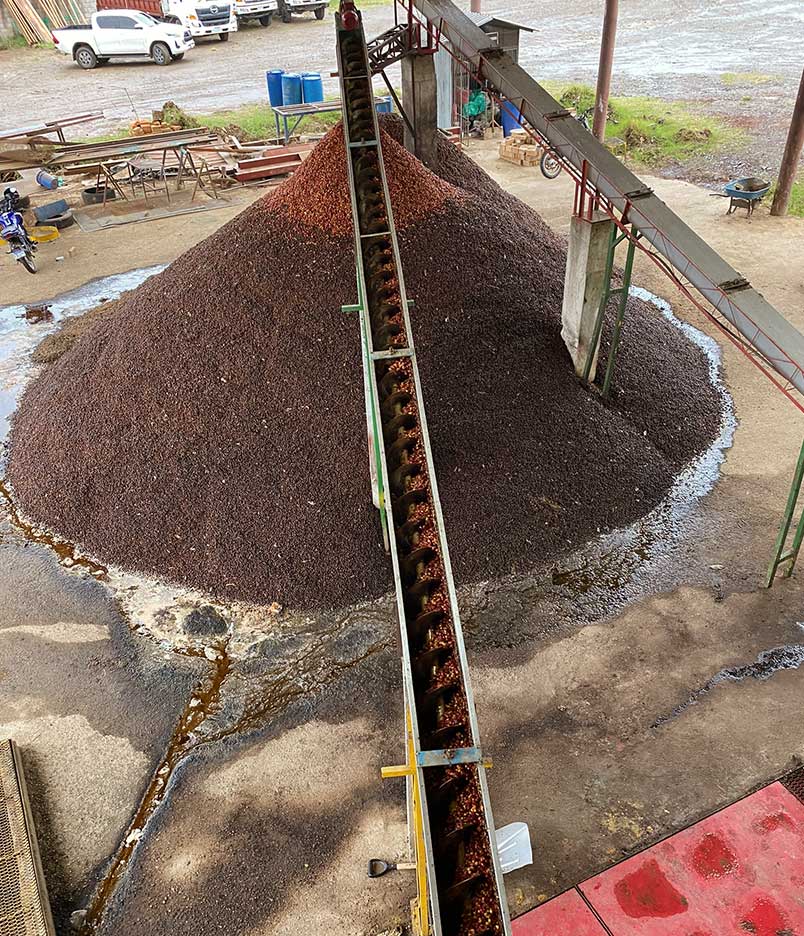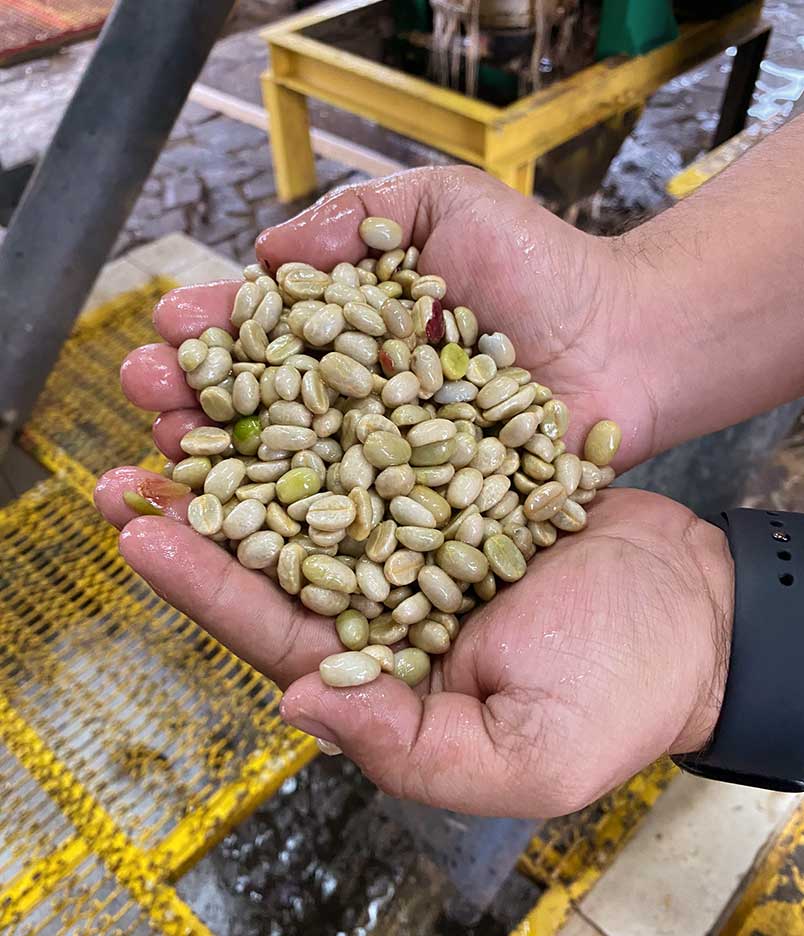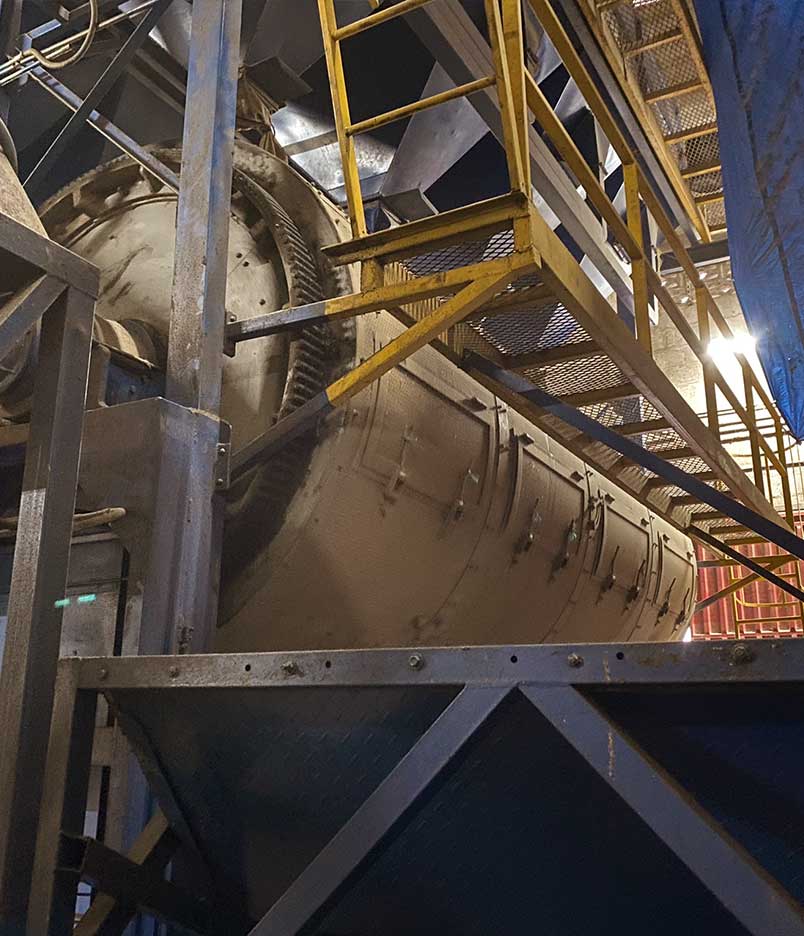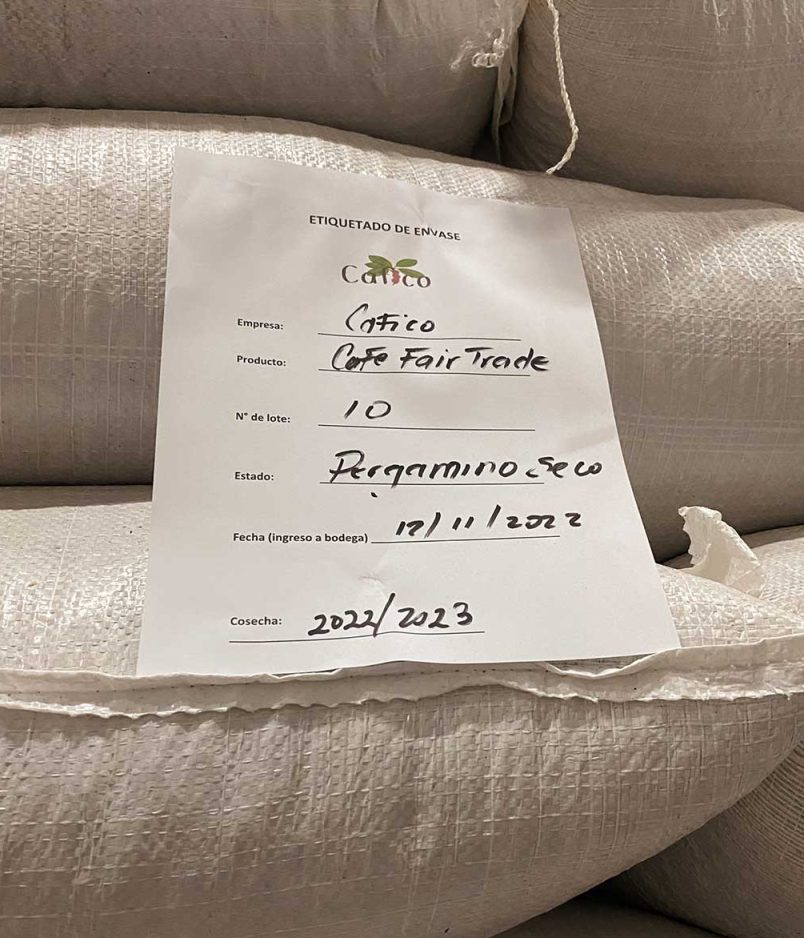Visiting CAFICO: Join our Green Coffee Buyer in Honduras
20 February 2023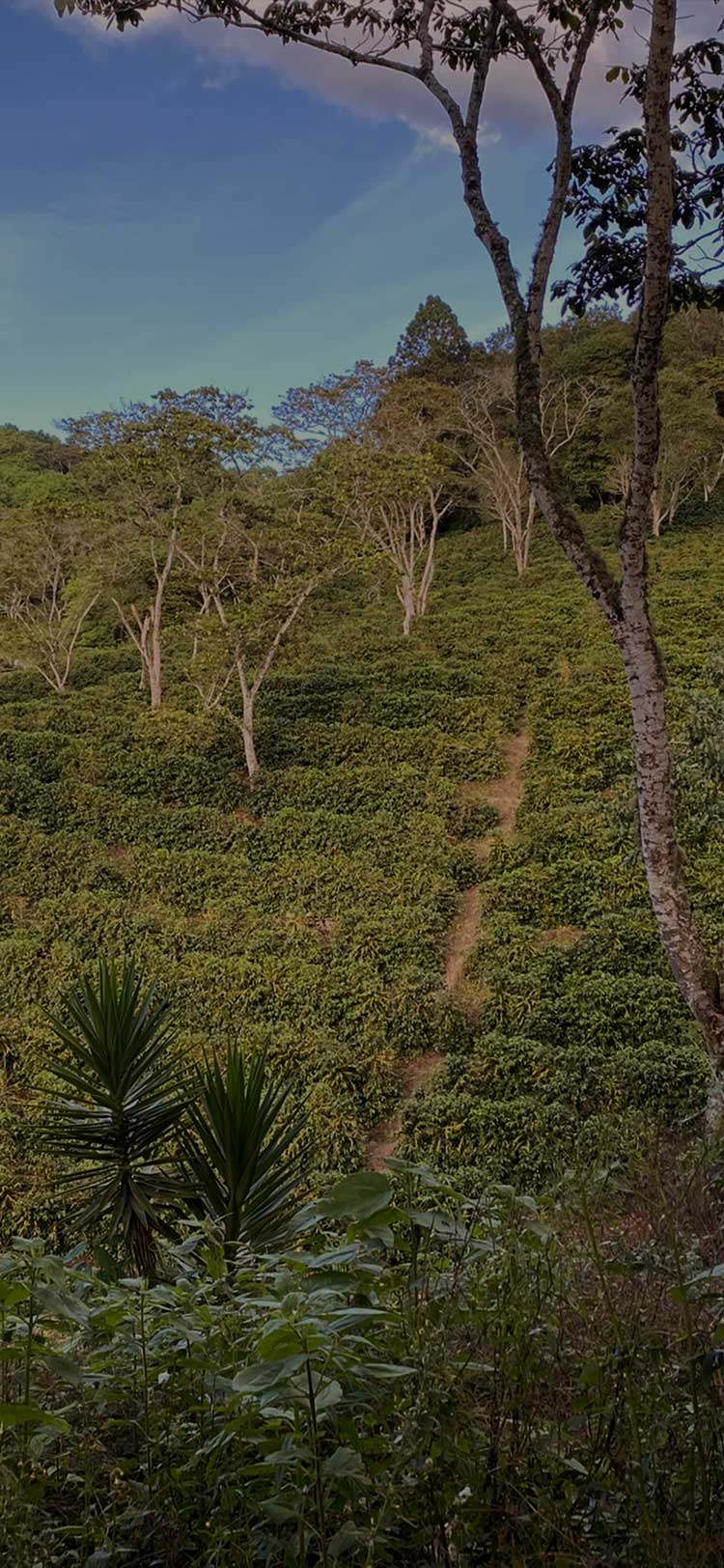
Sadie Walton, Ringtons Green Coffee and Quality Manager, last year was invited to visit Honduras. The main point of the trip was to visit CAFICO, one of the Fairtrade and Organic certified co-operatives from whom we source our Triple Impact coffee. Follow Sadie on her journey meeting with CAFICO and gaining insight into the coffee community in Honduras.
My trip to Honduras covered a great deal of ground, starting from the central region of Comagayua, heading west to visit CAFICO at Santa Rosa de Copan and CAFICO, then back east to Finca Las Moras, the Volcafe Way Model Farm.
In this article, I wanted to cover CAFICO in detail. CAFICO represent a modern, forward thinking cooperative who place environmental care and quality at the top of their agenda.
Lots to cover!
The Disney of Coffee
We’ve just contracted coffee from CAFICO for the second year running, so visiting was top of the agenda when I visited the country. The fact that CAFICO has been described as “The Disneyland of Coffee” was a pleasant bonus.
About CAFICO
CAFICO is in the famous coffee growing region of Copan, with farms between 1300 – 2000 metres above sea level. After being welcomed by several board members, including two fourth generation coffee farmers, we were taken to our first farm, Finca L’esquinada, located at 1375 masl. The farm is named after one of the very tall, thinnish trees native to the region.
The farm covered 28 hectares, large by Honduras standards where the average farm covers just 2 hectares, and was covered by a beautiful, dense shade – great for keeping growing conditions consistent.
More shocking though were the steps! Coffee farms are usually vast, hilly landscapes which can often be very difficult to navigate. I have never visited a coffee farm with a path through it, so to see paved foot ways and even concrete steps to navigate the hills was very helpful, especially as it had started drizzling that day.
The farm is almost entirely planted with Parainema, a rust resistant variety which produces good cup quality and good yields. Parainema was developed by the IHCAFE (Institute of Coffee Honduras) in response to the arrival of coffee leaf rust in the 1960s, which threatened to wipe out coffee production in Honduras.
The farm currently has an average yield of 37 quintas (quintal = 47 kilo green coffee) per hectare, which is slightly higher than the national average of 35. Considering this farm is organic and often organic farms have lower yields, this is a good volume. CAFICO put this down to a system of renovation and pruning, which they do when the branches begin to get heavy, rather than in adherence to a specific yearly system.
What’s the secret to CAFICO’s Success?
CAFICO was clearly producing excellent quality and yields – so what was the secret?
One, their homemade organic compost, made on their processing site by a combination of discarded coffee cherries, pulp, phosphorus and chalk. This was then provided to all their farmers with specific application instructions.
Two, they had developed their own fertiliser which can be applied to the leaves of the coffee trees to prevent any other coffee fungus.
This fertiliser is made from the agua miele, the sticky water which is a by-product of washing coffee cherry during processing. CAFICO have developed a formula whereby they capture the liquid, combine it with amino acids and phosphorus and mix it to form a spray. This spray is then used at specific times on the coffee tree leaves to provide them with nutrients and resistance to fungus, including coffee leaf rust.
Behind Your Coffee
Many still don’t appreciate the amount of work that goes into producing your morning coffee! These are just some of the processes at CAFICO.
Coffee Processing at CAFICO
The wet mill and drying processes at CAFICO are very impressive.
Upon arrival, all coffee cherry is washed, floated and pulped to form a wet parchment. Most coffee in Honduras is bought and sold as wet parchment, so many farms will carry out this process on their farm, albeit at a smaller scale. The a farmer can process their coffee, the larger proportion of the final income they will receive.
What happens next will depend on the requirement and initial quality assessment of the batch of cherry.
The best quality, smaller lots will be selected for sun drying either on the patios or in solar dryers. Drying here can take anything between 8 – 14 days, during which the coffee must be continuously raked and covered at night or during rainfall. The bulk lots will be dried in a mechanical dryer, where the temperature can be carefully controlled for consistency.
Mechanical drying to 10-12% moisture takes roughly 48 hours and the advantage is that the process can be carefully controlled. The speed of mechanical drying helps the coop process the volumes quickly and create a more consistent result. Although it is argued the very best qualities come from sun drying.
The dried coffee will then be bagged up, labeled and stored by lot in the warehouse until it is sent to the dry mill in San Pedro Sula prior to being prepared, sorted and bagged for export. Coffee is stored in parchment (or pergamino) to protect the green quality and maintain its freshness.
Quality Control At CAFICO
After the tour we had a cupping, which due to the timing, consisted mainly of last year’s crop and the very early harvest from this year.
Interestingly, last year’s crop still tasted fresh (much fresher than a 10 month old Honduran coffee would at home) which is likely to be because of the storage in parchment which avoids the development of aged notes and helps maintain the sugars.
The initial qualities from this year’s harvest also tasted good, if slightly too fresh, but it is clear that after some further development, the quality of this years harvest will be very good.

Honduras as a county is working hard to improve it’s quality and it’s clear from my visit to CAFICO that they are doing everything they can to produce outstanding coffee. From the growing conditions, harvesting, processing and storage, everything is done with final cup quality in mind.
In my role as a buyer for Ringtons, it’s a pleasure to work with suppliers who are focusing on producing quality, specialty varieties, despite the many challenges they face.
This focus on quality will improve prices, farmer incomes and thus investment in their farms. Additionally, by making coffee farming a more appealing, profitable and modern enterprise. The hope is that young people will be attracted back to the country and help to build the economy in its own right.
Hopefully, with cooperatives like CAFICO, the coffee community in Honduras will not only survive, but thrive.
